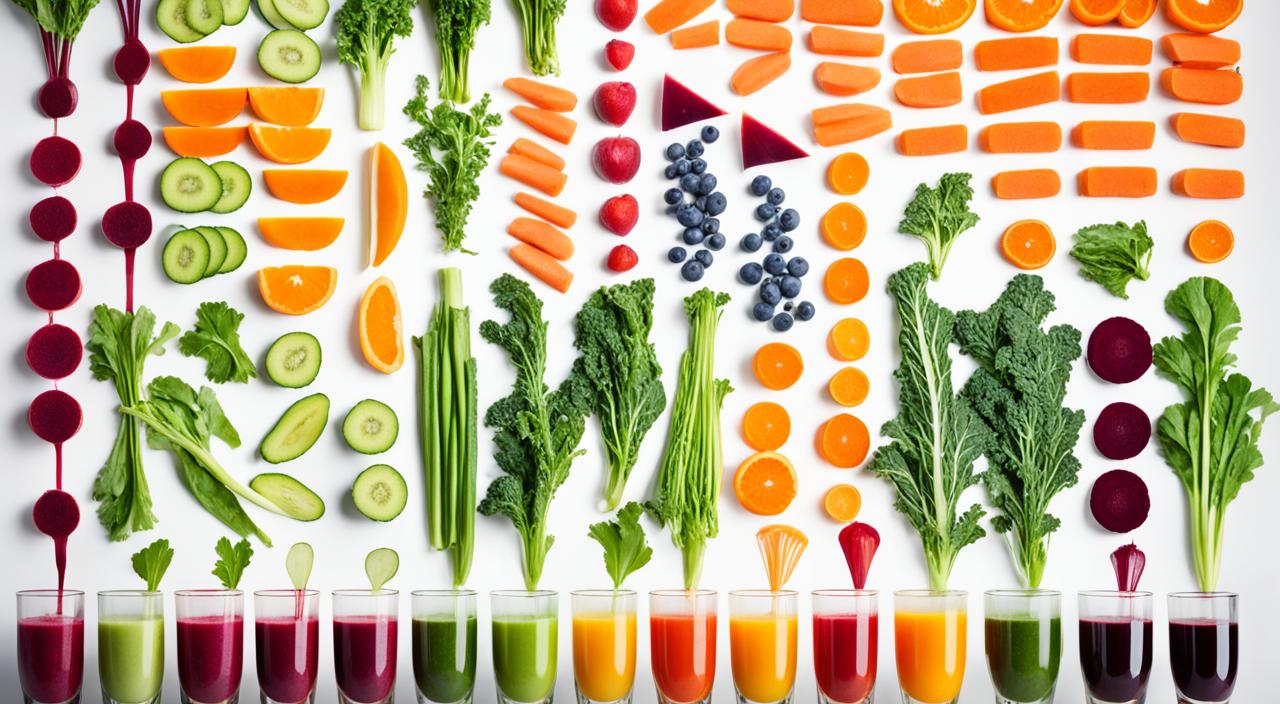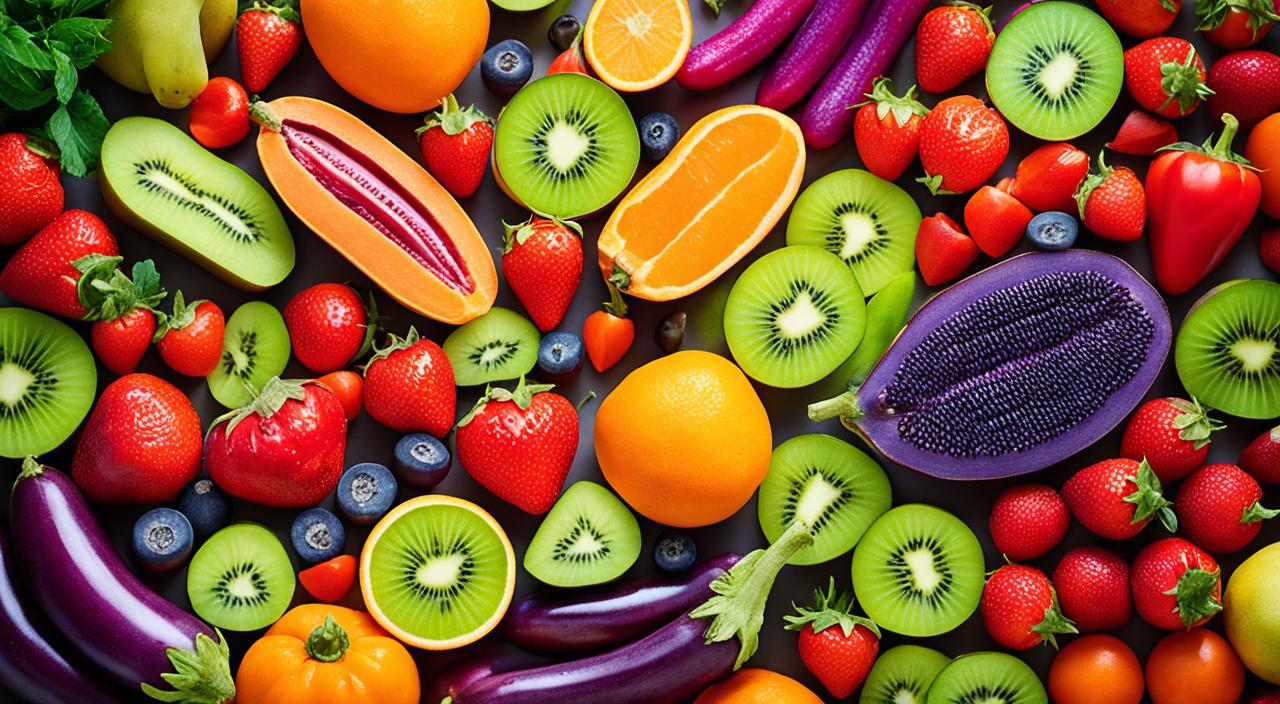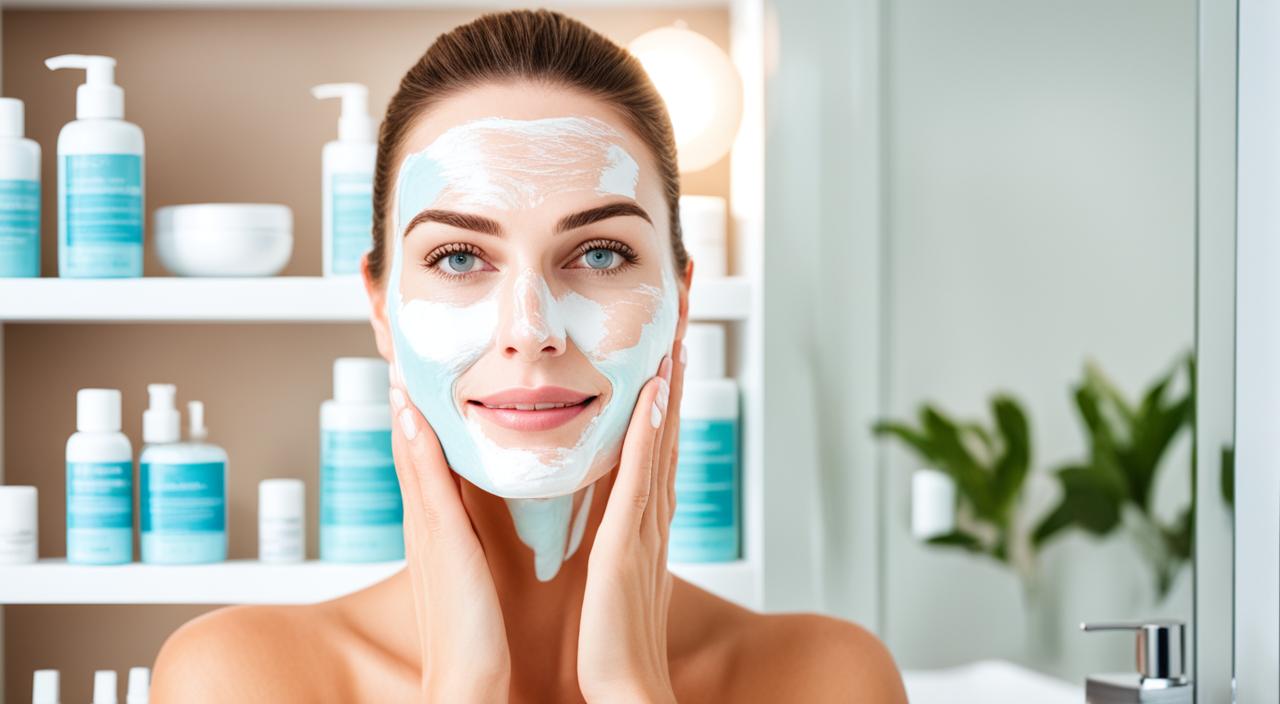Timeless Beauty: Effective Skincare For Aging Skin
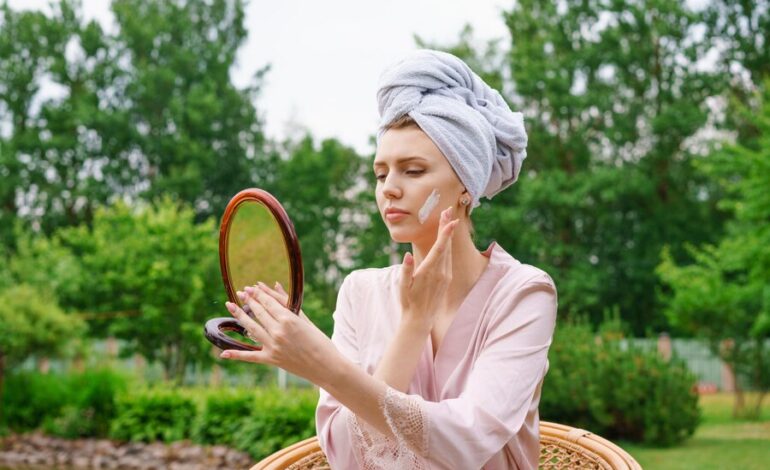
Skincare For Aging Skin As we age, our skin goes through various changes. Fine lines, loss of firmness, dullness, and uneven skin tone become more noticeable. But with the right skincare routine and products, you can address these concerns and maintain a youthful appearance.
Timeless offers a range of expertly crafted skin serums that specifically target the signs of aging. These serums are formulated with hydrating ingredients like Hyaluronic Acid and powerful anti-aging compounds such as Matrixyl® 3000, Vitamin C, and Coenzyme Q10. By incorporating these serums into your skincare routine, you can diminish visible signs of skin aging and enjoy a healthy and timeless beauty.
Key Takeaways: Skincare For Aging Skin
- Regular use of targeted serums can address common skin concerns associated with aging.
- Hyaluronic Acid provides hydration, while anti-aging ingredients like Matrixyl® 3000, Vitamin C, and Coenzyme Q10 help reduce signs of aging.
- Choose skincare products that are specifically formulated for mature skin.
- Adopting a holistic approach to skincare, including sun protection, a healthy lifestyle, and a consistent skincare routine, can help maintain a youthful appearance.
- Consult with skincare professionals for personalized advice and guidance tailored to your skin’s needs.
The Importance of Sun Protection
Sun exposure is a primary cause of premature aging. Harmful UV rays can damage collagen and elastin, leading to wrinkles, fine lines, and sagging skin. To protect the skin, it is essential to wear sunscreen with a broad spectrum SPF of 30 or higher, even on cloudy days. Seeking shade, wearing protective clothing, and using hats and sunglasses are also recommended to minimize direct sun exposure.
When it comes to safeguarding your skin from the sun’s harmful rays, sunscreen is your skin’s best friend. Applying sunscreen with a broad spectrum formula provides protection against both UVA and UVB rays, ensuring comprehensive defense against sun damage.
But what exactly is broad spectrum?
Broad spectrum refers to a sunscreen’s ability to shield the skin from both UVA and UVB rays. UVA rays are associated with premature aging and can penetrate deep into the skin, while UVB rays are responsible for sunburn and can damage the outermost layers of the skin. By using a broad spectrum sunscreen, you can effectively protect your skin from both types of harmful rays, reducing the risk of sunburn, premature aging, and skin cancer.
So, how do you choose the right sunscreen?
When selecting a sunscreen, opt for a product with a broad spectrum SPF (sun protection factor) of 30 or higher. The SPF indicates the level of protection against UVB rays, with higher numbers providing increased protection. Additionally, look for sunscreens that are water-resistant to ensure long-lasting coverage, especially if you’ll be swimming, sweating, or participating in outdoor activities.
Remember, sunscreen should always be applied generously and reapplied every two hours or after swimming or sweating heavily. For the best results, apply sunscreen at least 15 minutes before sun exposure to allow the product to fully absorb into the skin.
But sun protection isn’t just about sunscreen.
To further shield your skin from sun damage, it’s important to take additional precautionary measures. Seek shade during peak sun hours between 10 am and 4 pm when the sun’s rays are the strongest. When venturing outside, wear protective clothing that covers your arms, legs, and face. Don’t forget a wide-brimmed hat and sunglasses with UV protection to shield your eyes and the delicate skin around them.
Take action now to protect your skin from the sun’s harmful rays.
| Broad Spectrum SPF | Protection Against |
|---|---|
| SPF 15 | Absorbs 93% of UVB rays |
| SPF 30 | Absorbs 97% of UVB rays |
| SPF 50 | Absorbs 98% of UVB rays |
| SPF 100 | Absorbs 99% of UVB rays |
Maintaining a Healthy Lifestyle
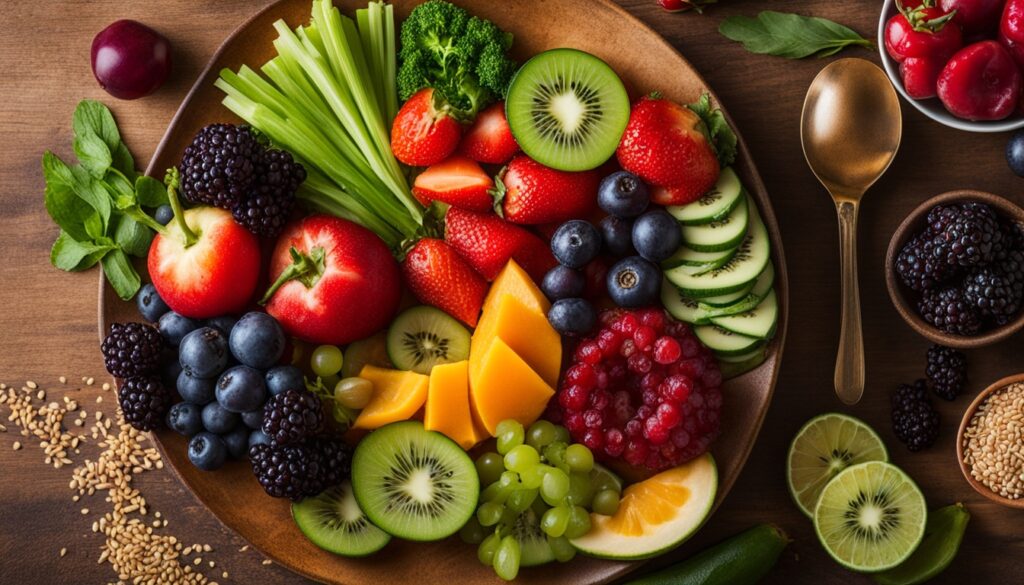
Lifestyle choices have a significant impact on the aging process of our skin. By adopting a balanced diet and hydrating regularly, we can support our skin’s health and maintain a youthful appearance.
A balanced diet that includes a variety of nutrient-dense foods is essential for promoting skin health. Incorporating fruits, vegetables, whole grains, and lean proteins into our meals provides the necessary vitamins, minerals, and antioxidants that combat free radicals and protect our skin from oxidative stress. These powerful nutrients help maintain the vitality of our skin cells and minimize the signs of aging.
Additionally, hydration is crucial for plump and youthful-looking skin. Drinking an adequate amount of water throughout the day helps maintain skin elasticity and prevents dryness. Staying hydrated not only improves the overall appearance of the skin but also supports its natural functions, such as toxin elimination and nutrient transportation.
“A balanced diet and proper hydration are fundamental for maintaining healthy skin. They provide the necessary nutrients and hydration that our skin needs to thrive.” – Dr. Emily Roberts, Dermatologist
The Benefits of Nutrient-Dense Foods
Consuming nutrient-dense foods not only benefits our overall well-being but also plays a crucial role in maintaining youthful-looking skin. Here are some specific benefits:
- Antioxidant-rich foods combat free radicals, which can contribute to premature aging.
- Essential vitamins and minerals promote collagen production and skin elasticity.
- Healthy fats, like those found in avocados and nuts, nourish the skin and help maintain its moisture barrier.
- Omega-3 fatty acids, found in fish and flaxseed, are anti-inflammatory and can reduce skin redness and irritation.
Hydration for Healthy Skin
Proper hydration is vital for achieving and maintaining healthier skin. It helps:
- Regulate body temperature and improve blood circulation, promoting a healthy glow.
- Flush out toxins and waste materials from the skin cells, keeping them clean and clear.
- Prevent dryness, flakiness, and dullness, leading to a brighter and more youthful complexion.
Remember, a balanced diet and regular hydration are foundational steps towards achieving and maintaining healthy, radiant skin.
| Nutrient-Dense Foods | Benefits for Skin |
|---|---|
| Fruits and Vegetables | High in antioxidants, vitamins, and minerals that protect and nourish the skin. |
| Whole Grains | Provide essential nutrients for maintaining skin health, such as zinc and selenium. |
| Lean Proteins | Support collagen synthesis and contribute to skin firmness and elasticity. |
Establishing a Skincare Routine

In order to maintain the youthful appearance of your skin, it is essential to establish a consistent skincare routine. By incorporating key steps into your daily regimen, you can ensure that your skin stays clean, hydrated, and nourished.
Cleanse
The first step in any skincare routine is cleansing. Cleansing the face twice a day, in the morning and evening, is important to remove dirt, oil, and impurities that can clog pores and contribute to skin problems. Choose a gentle cleanser that is suitable for your skin type and massage it onto damp skin using circular motions. Rinse thoroughly with lukewarm water and pat your skin dry with a soft towel.
Moisturize
After cleansing, it is crucial to moisturize your skin to keep it hydrated and supple. Moisturizers help to lock in moisture and prevent the skin from becoming dry and dull. Look for a moisturizer that suits your skin type and includes ingredients like hyaluronic acid, which helps to attract and retain moisture, keeping your skin plump and youthful-looking. Apply the moisturizer to your face and neck using gentle upward strokes.
Incorporate an Anti-Aging Serum
In addition to cleansing and moisturizing, incorporating an anti-aging serum into your skincare routine can provide targeted benefits for your skin concerns. Anti-aging serums typically contain potent ingredients like retinol, vitamin C, and hyaluronic acid, which are known for their ability to combat signs of aging and boost collagen production. These serums can help reduce the appearance of fine lines and wrinkles, even out skin tone, and improve overall skin texture. Apply a few drops of the serum onto clean skin and gently massage it in, allowing it to penetrate deeply.
“A consistent skincare routine that includes cleansing, moisturizing, and the use of an anti-aging serum can make a significant difference in preserving the youthful appearance of your skin.”
Remember, consistency is key when it comes to skincare. It may take time to see noticeable results, but with regular use of the appropriate products, you can achieve healthier, more youthful-looking skin. Consult with a skincare professional to determine the best skincare routine and products for your specific needs and concerns.
Prioritizing Sleep and Stress Management

Sufficient sleep is essential for skin rejuvenation and overall well-being. When it comes to achieving a healthy and vibrant complexion, the quality of sleep you get matters just as much as the quantity. During sleep, the body goes through a process of repair and regeneration, including the renewal of skin cells.
To promote skin rejuvenation, aim for 7-9 hours of quality sleep each night. This allows your body to fully engage in the restorative processes that contribute to healthy skin. Incorporate good sleep hygiene practices, such as establishing a regular bedtime routine, creating a comfortable sleep environment, and avoiding stimulants like caffeine before bed.
Stress management is also crucial for maintaining skin health. Chronic stress can have detrimental effects on the skin, including accelerated aging processes and the impairment of natural rejuvenation mechanisms. Finding effective ways to manage stress can greatly benefit both your mental well-being and your skin.
“Managing stress through relaxation techniques like meditation and yoga is particularly beneficial for stress management and promoting skin health. These practices promote mindfulness and help reduce stress hormones, which can have a positive impact on skin appearance and texture.”
Make time for activities that help you unwind and relax, such as taking regular breaks, engaging in hobbies, or practicing deep breathing exercises. Prioritizing self-care and finding healthy outlets for stress relief can go a long way in supporting quality sleep and maintaining a healthy, glowing complexion.
Remember, quality sleep and effective stress management are vital components of a holistic approach to skin care. By prioritizing these aspects in your lifestyle, you can support the natural rejuvenation processes of your skin and promote a healthy, youthful appearance.
Quit Smoking and Limit Alcohol Consumption
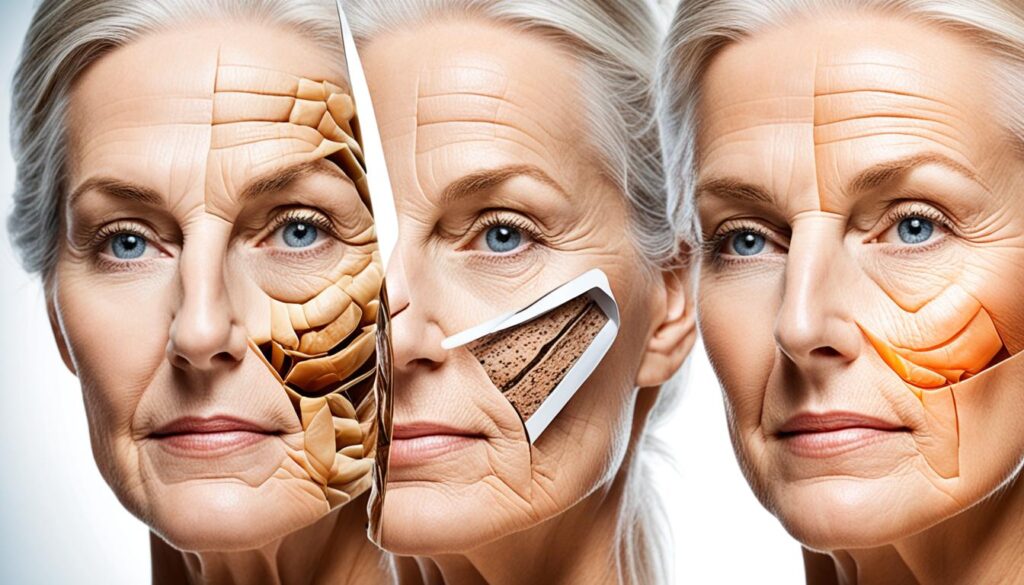
As you age, it becomes even more important to prioritize your overall health and make conscious choices that promote well-being. Two habits that have a significant impact on your skin health are smoking and alcohol consumption.
Smoking is not only detrimental to your respiratory health but also greatly accelerates skin aging. Cigarettes introduce harmful chemicals and toxins to your body, constricting blood vessels and impeding blood flow to the skin. This restricted blood flow deprives the skin of essential nutrients and oxygen, leading to a lackluster, sallow complexion. Additionally, smoking damages collagen and elastin, the fibers responsible for maintaining skin elasticity. Over time, this can result in fine lines, wrinkles, and a prematurely aged appearance.
Excessive alcohol consumption can also take a toll on your skin. Alcohol is a diuretic, meaning it dehydrates your body, including your skin. This dehydration can result in dryness, flakiness, and a dull complexion. Moreover, alcohol disrupts collagen synthesis, which can lead to a loss of skin firmness and elasticity. By moderating your alcohol intake, you can help preserve your skin’s youthful vitality and prevent premature signs of aging.
The Impact of Smoking on Skin Aging
“Smoking introduces harmful chemicals and toxins to the body, restricting blood flow and leading to wrinkles and a sallow complexion.”
Quitting smoking is one of the most beneficial actions you can take to improve not only your skin health but also your overall well-being. By quitting, you allow your body to heal and repair the damage caused by smoking. Within a few weeks, you may notice improvements such as clearer skin, reduced inflammation, and better blood circulation. Over time, your skin can regain its natural radiance and youthful appearance.
The Effects of Alcohol on Skin Aging
“Excessive alcohol consumption can dehydrate the skin and disrupt collagen synthesis.”
Choosing to consume alcohol in moderation can have a positive impact on your skin. Instead of indulging in excessive amounts, opt for moderate alcohol consumption or consider alternatives like mocktails or non-alcoholic beverages. By drinking responsibly, you can avoid the dehydrating effects of alcohol and support your skin’s hydration levels, enhancing its natural glow.
So, if you’re looking to maintain a youthful and vibrant complexion, it’s crucial to kick the smoking habit and limit your alcohol intake. These lifestyle changes can go a long way in preserving your skin’s health and appearance throughout the aging process.
Regular Exercise for Skin Health
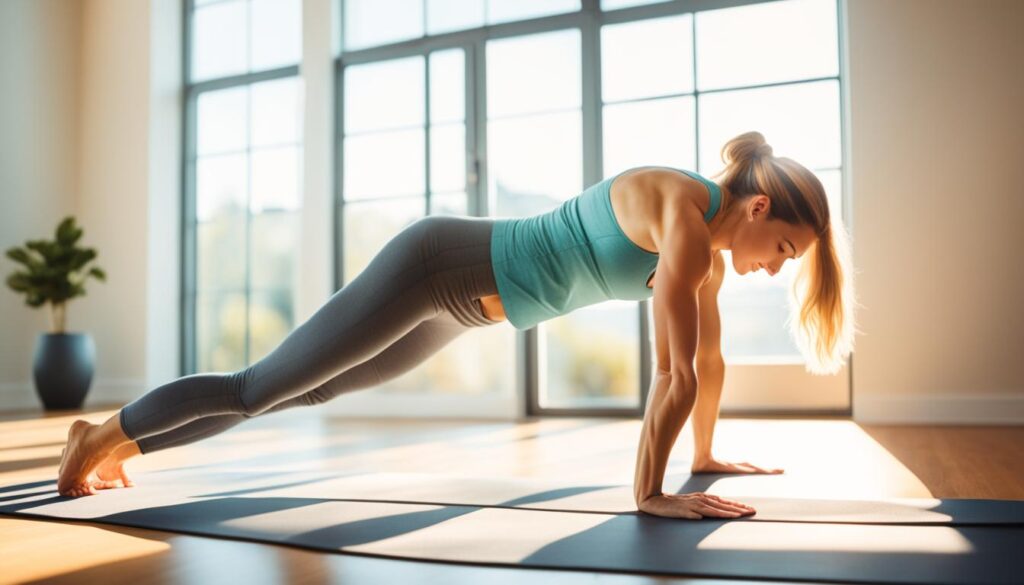
Regular exercise is not just beneficial for your overall health and fitness but also plays a crucial role in maintaining healthy and vibrant skin. Incorporating exercise into your routine can have a positive impact on various aspects of skin health.
One of the key benefits of exercise for the skin is increased blood flow. When you engage in physical activity, your heart rate increases, leading to improved circulation. This boost in blood flow delivers oxygen and essential nutrients to the skin cells, promoting a healthy complexion.
Exercise increases blood flow, delivering oxygen and nutrients to the skin cells, promoting a healthy complexion.
Furthermore, exercise stimulates collagen production in the body. Collagen is a protein that provides structural support to the skin, keeping it firm and elastic. As we age, collagen production naturally decreases, leading to the formation of wrinkles and sagging skin. By engaging in regular exercise, you can help support collagen production and maintain a youthful appearance.
In addition to its direct effects on the skin, exercise also indirectly contributes to skin health by reducing stress levels. High levels of stress can negatively impact the skin, leading to various issues such as acne breakouts and dullness. Regular exercise helps reduce stress and promotes a sense of well-being, which can have a positive impact on skin health.
When incorporating exercise into your routine, it’s important to find activities that you enjoy and that suit your fitness level. Whether it’s brisk walking, cycling, swimming, or a dance class, the key is to engage in activities that get your heart rate up and make you break a sweat.
Remember to stay hydrated during your workouts by drinking water before, during, and after exercise. This helps flush out toxins from the body and keeps the skin hydrated and supple.
Overall, regular exercise offers numerous benefits for skin health. From increased blood flow and collagen production to stress reduction, incorporating physical activity into your lifestyle can contribute to a healthy and youthful complexion.
Professional Assessment and Guidance
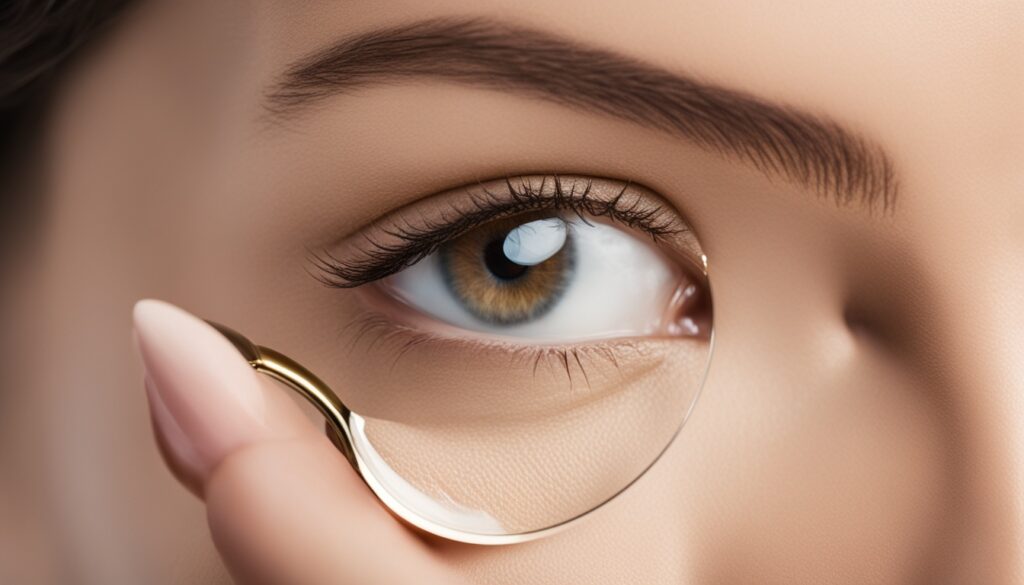
When it comes to skincare, seeking professional assessment and guidance can greatly benefit your skincare routine and overall skin health. Regular visits to a skincare professional allow for personalized assessments tailored to your unique needs and concerns. By analyzing your skin’s condition and understanding its specific requirements, skincare professionals can provide invaluable insights and recommendations to help you achieve the best possible results.
A professional skincare assessment involves a detailed examination of your skin, including an analysis of its texture, tone, and elasticity. Skincare professionals are trained to identify any potential issues before they become major problems, allowing for early intervention and prevention. Through this assessment process, they can identify underlying causes of skin conditions and recommend suitable treatments or adjustments to your current skincare routine.
Personalized advice is another key aspect of professional skincare guidance. Skincare professionals can provide you with tailored recommendations based on your specific skin type, concerns, and goals. They can guide you in selecting the most suitable skincare products, ingredients, and treatments that will address your unique needs effectively.
Furthermore, skincare professionals can offer valuable insights into the correct order of applying skincare products and provide instructions on how to maximize their effectiveness. They can explain the benefits of incorporating specific ingredients like retinol, hyaluronic acid, or vitamin C to target concerns such as fine lines, wrinkles, or hyperpigmentation.
Professional assessment and personalized advice allow you to make informed decisions about your skincare routine and ensure that you are using the right products and techniques for your skin’s needs.
Whether you are dealing with specific skin concerns or simply looking to maintain a healthy complexion, professional assessment and guidance offer a wealth of knowledge and expertise. Skincare professionals can guide you through the overwhelming sea of skincare products and help you navigate your way to a skincare routine that truly works for you. By investing in a professional skincare assessment, you are prioritizing the health and beauty of your skin for the long term.
Expert Tips from a Skincare Professional:
- Regularly schedule appointments with a skincare professional to stay updated on your skin’s condition and any necessary adjustments to your skincare routine.
- Communicate your skincare goals and concerns openly and honestly during your professional assessment to ensure the best possible guidance.
- Follow the personalized advice provided by the skincare professional, including product recommendations, application techniques, and lifestyle modifications.
- Stay consistent with your skincare routine and follow any prescribed treatments or instructions for optimal results.
- Don’t hesitate to ask questions during your professional assessment or follow-up appointments.
Avoiding Excessive Facial Expressions and Repetitive Movements
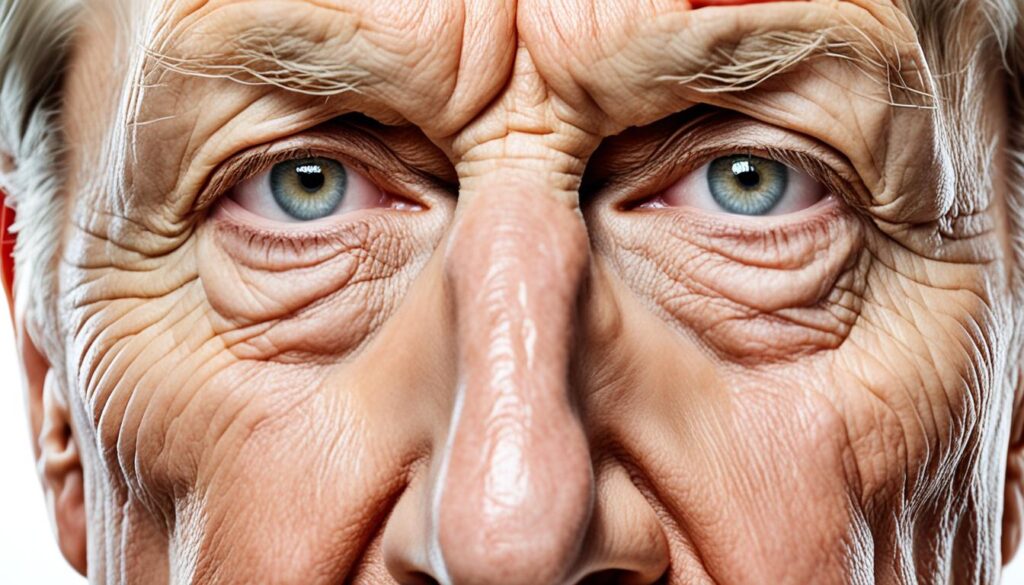
Repetitive facial expressions like frowning or squinting can lead to the formation of wrinkles over time. These movements strain the facial muscles, causing lines to deepen and become more visible. It’s important to be mindful of these expressions and find ways to relax and alleviate tension in the face.
One effective method to prevent deep lines is through the practice of facial yoga. This technique involves specific exercises and stretches designed to tone and relax the facial muscles. By incorporating regular facial yoga sessions into your skincare routine, you can help improve blood circulation, promote muscle flexibility, and reduce the appearance of wrinkles.
Another beneficial technique is facial massage. By gently massaging the face with upward strokes, you can stimulate blood flow, boost collagen production, and help reduce the tension and stress that can contribute to facial lines.
Remember, prevention is key when it comes to combating wrinkles caused by facial expressions. By being aware of your facial movements and incorporating practices like facial yoga and massage into your routine, you can maintain a smoother and more youthful-looking complexion.
Benefits of Facial Yoga and Massage:
- Tones and relaxes facial muscles
- Improves blood circulation
- Boosts collagen production
- Promotes a more youthful-looking complexion
- Reduces tension and stress in the face
Investing time in these self-care practices can have a positive impact on your skin’s overall health and appearance. So why not give facial yoga and massage a try? Your skin will thank you!
Testimonials:
“I’ve been practicing facial yoga for a few months now, and I’ve noticed a significant improvement in the fine lines and wrinkles on my forehead and around my mouth. It’s like a natural facelift!” – Emily S.
| Facial Expressions | Effects on Wrinkles |
|---|---|
| Frowning | Promotes the formation of forehead wrinkles and deep lines between the eyebrows |
| Squinting | Contributes to crow’s feet and wrinkles around the eyes |
| Laughing | May lead to smile lines around the mouth |
By being mindful of your facial expressions, incorporating facial yoga and massage into your routine, and practicing good skincare habits, you can help minimize the appearance of wrinkles and maintain a more youthful-looking complexion.
According to dermatologists, the best anti-aging skincare products are the top picks when it comes to combating the signs of aging. It’s best to trust their expertise when selecting the most effective products for your skincare routine.
Every skincare routine should be tailored to your specific skin type and concerns, especially when it comes to anti-aging. According to board-certified dermatologists, the best anti-aging skincare routine incorporates key ingredients like vitamin C serum, retinol, and sunscreen with SPF 30 or higher to protect against skin cancer and signs of aging caused by sun damage. These powerhouse ingredients stimulate collagen production, promote cell turnover, and brighten skin tone while reducing the appearance of wrinkles, fine lines, and hyperpigmentation. To maintain a healthy skin barrier and prevent irritation, it’s crucial to cleanse gently, moisturize regularly, and incorporate antioxidants like vitamin C and ceramides into your routine. Dermatology experts recommend exfoliating to remove dead skin cells and encourage skin renewal, but caution against over-exfoliation, which can lead to redness and irritation, especially for those with sensitive skin. Whether you’re in your 30s, 40s, or 50s, it’s never too early to start an anti-aging skincare regimen that addresses your unique needs and makes your skin look and feel its best.
Also Read: What Are The Best Ingredients For Sensitive Skin Care?
Conclusion
Aging is a natural process, and as we grow older, our skin requires extra care and attention to maintain its vitality. By incorporating effective skincare tips for older skin into your daily routine, you can support your skin’s health and defy the signs of aging.
One essential aspect of age-defying skincare is using products formulated with natural remedies for aging skin. Look for age-defying skincare products that contain potent ingredients known for their benefits on mature skin, such as antioxidants, peptides, and hyaluronic acid. These ingredients can help reduce the appearance of wrinkles, hydrate the skin, and improve overall skin texture.
Additionally, adopting a healthy lifestyle is crucial for maintaining youthful-looking skin. Keep your skin protected from the sun’s harmful rays by wearing sunscreen with broad-spectrum protection, seeking shade, and wearing protective clothing. Prioritize quality sleep and manage stress to promote skin rejuvenation. Quit smoking and limit alcohol consumption to avoid accelerated skin aging.
Establishing a consistent skincare routine is key for mature skin. Cleanse your face daily to remove impurities, moisturize to keep your skin hydrated, and incorporate age-defying skincare products that target specific concerns, such as retinol or vitamin C. Regular exercise can also boost blood flow and collagen production, contributing to healthier-looking skin.
FAQs
Q: What are the key ingredients to look for in an effective skincare product for aging skin?
A: Some key ingredients to look for in skincare products for aging skin include moisturizer, vitamin C, retinol, and hyaluronic acid.
Q: How important is sunscreen in an anti-aging skincare routine?
A: Sunscreen is crucial in an anti-aging skincare routine as it helps protect the skin from harmful UV rays that can accelerate skin aging.
Q: What is the significance of incorporating retinoids in an anti-aging skincare regimen?
A: Retinoids are powerful anti-aging ingredients that help improve skin texture, reduce fine lines and wrinkles, and promote cell turnover.
Q: How can one best hydrate aging skin?
A: Hydrating aging skin involves using products with hyaluronic acid, glycerin, and ceramides to lock in moisture and improve skin elasticity.
Q: What are some effective methods to combat signs of aging like dark spots and fine lines?
A: To address signs of aging like dark spots and fine lines, incorporating products with vitamin C, retinol, and exfoliating acids can be beneficial.
Q: Why is it recommended to consult with dermatology experts for anti-aging skincare advice?
A: Consulting with board-certified dermatologists can provide personalized recommendations and guidance tailored to your specific skin concerns and needs.
Q: What are the best anti-aging skincare products recommended by dermatologists?
A: Some top picks for anti-aging skincare products include repair creams, vitamin C serums, sunscreen with at least SPF 30, and products containing ingredients like ceramides and antioxidants.

